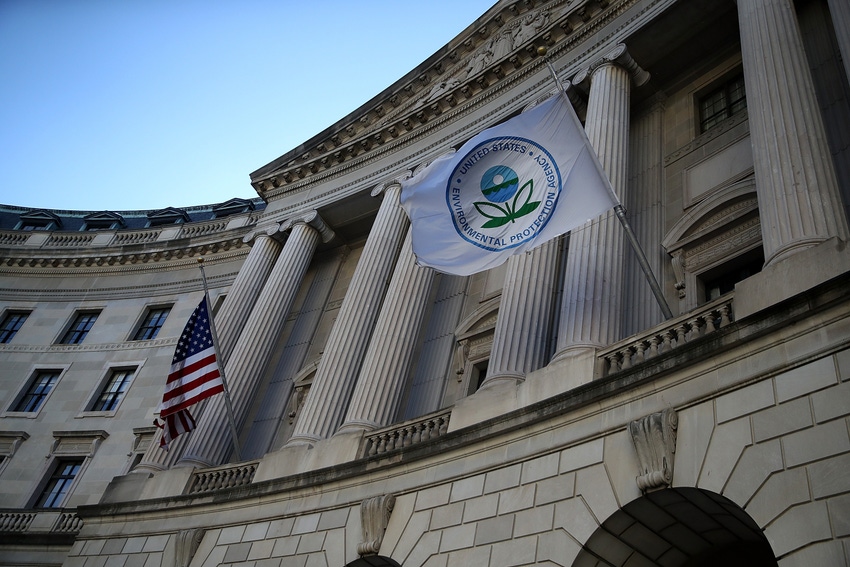RFS already results in directly reducing amount of renewable fuel blending requirements under lower fuel demand.
April 17, 2020

Five governors — Greg Abbott of Texas, Gary Herbert of Utah, John Bel Edwards of Louisiana, Kevin Stitt of Oklahoma and Mark Gordon of Wyoming, have asked the Trump Administration to waive U.S. biofuel blending requirements. However, their request received a loud pushback and criticism from the biofuel industry.
The governors cite a spike in the cost of tradable credits refiners use to prove compliance with annual biofuel blending targets, as well as the coronavirus pandemic that has ravaged fuel demand and already spurred a closure for at least one oil refinery. The credit costs have more than doubled this year.
A waiver of Renewable Fuel Standard (RFS) volumes set more than a year in advance would severely harm the biodiesel industry. Texas and Louisiana are two of the top states in biodiesel and renewable diesel production; an RFS waiver would particularly hurt tens of thousands of workers in the two states, said the National Biodiesel Board.
Renewable Fuels Assn. (RFA) president and chief executive officer Geoff Cooper, in a letter Friday to U.S. Environmental Protection Agency Administrator Andrew Wheeler, reminded EPA that a waiver may only be granted if petitioners can show that “economic harm” is “severe” in nature and is a direct result of the RFS, not some other factor.
“We are skeptical the letters you received even rise to the level of a petition that would necessitate the opening of a docket and solicitation of public comment,” Cooper wrote. “They fail miserably to make any defensible demonstration that the RFS itself is the sole source of ‘severe economic harm’ in their states.”
Cooper noted that the same harms cited by the oil-state governors have also been experienced by ethanol producers across rural America in the last six weeks, resulting in a 45% reduction in demand, a 47% drop in production, lost jobs and economic instability across the Midwest. “The oil-state request to waive the RFS is nothing more than a cynical gambit to capitalize on the public health tragedy of COVID-19. It’s a veiled attempt to achieve the refining sector’s long-standing goal of undermining the success of renewable fuels and protecting their chokehold on the nation’s fuel market.”
Kurt Kovarik, National Biodiesel Board vice president of federal affairs, said, “The waiver sought by the oil-state governors would devastate renewable fuel producers, cost essential critical infrastructure jobs in multiple states, reduce incomes for soybean farmers and lead to dirtier air and higher carbon emissions.”
Waiving the RFS requirements for 2020 would be particularly devastating to biodiesel and renewable diesel producers. EPA sets the biomass-based diesel volume requirement more than a year in advance to give all stakeholders time to plan and invest. Now that EPA has translated the volume requirements into the annual percentage obligation, a waiver would provide little additional benefit to refiners but undercut the investments and plans of biodiesel producers.
Nationwide, the biodiesel industry supports more than 60,000 jobs and $17 billion in economic activity. With more than 20% of the nation's biomass-based diesel production capacity, Texas and Louisiana reap significant benefits from producing and using these fuels. A waiver would cost jobs and economic investment in the two states.
RFA added, “there is simply no reason to abandon the RFS -- the nation’s most successful effort to promote clean-burning, homegrown, low-cost renewable fuels,” Cooper concluded. Further destroying renewable fuel demand by vacating RFS requirements would unnecessarily, callously and illegally exacerbate the economic harm already being inflicted on farmers and ethanol producers, he added.
The letter concluded by stating, “EPA must abide by the statute. It must require any party seeking a general waiver to provide data and concrete evidence demonstrating that: (1) the RFS itself is the cause of economic harm to a state (i.e., not to individual refiners); (2) that the harm is ‘severe’ in nature, and (3) that a waiver would redress the harm. The letters sent to you by these five governors fail to satisfy any of those requirements and should not be considered ‘petitions.’ The agency should immediately reject this cynical effort by oil refiners to capitalize on our nation’s current public health and economic challenge.”
You May Also Like


.png?width=300&auto=webp&quality=80&disable=upscale)
